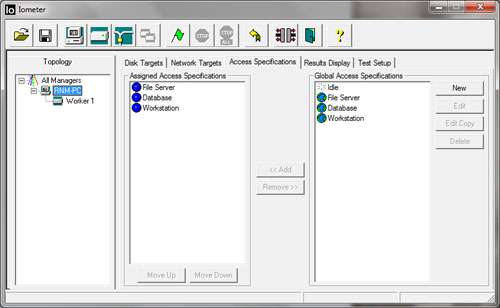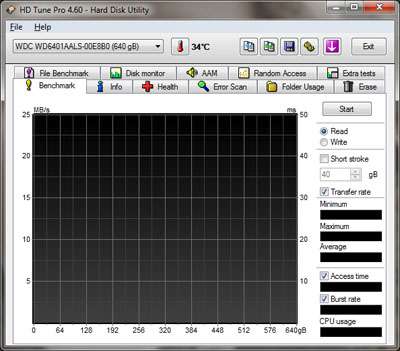- Qualcomm Launches Snapdragon 4 Gen 2 Mobile Platform
- AMD Launches Ryzen PRO 7000 Series Mobile & Desktop Platform
- Intel Launches Sleek Single-Slot Arc Pro A60 Workstation Graphics Card
- NVIDIA Announces Latest Ada Lovelace Additions: GeForce RTX 4060 Ti & RTX 4060
- Maxon Redshift With AMD Radeon GPU Rendering Support Now Available
Intel Z68 SSD Disk Caching Showdown
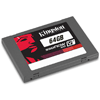
When we tested out Intel’s ‘Smart Response Technology’ last month, we liked what we saw. But at $110 for a 20GB SLC SSD, we wondered if a larger, more cost-effective option could still make the best use of the technology. With that, we’re pitting Kingston’s SSDNow V+100 64GB drive, at $150, against Intel’s, to see if we retain SRT’s effectiveness.
Page 4 – Comparison Results
After reviewing the final results and seeing that there were some that just couldn’t be explained, I had a chat with our resident SSD guru, Robert. Seeing how these drives vary greatly in capacity, technology and official specifications, it was decided to perform a side-by-side comparison by running two additional synthetic benchmarks that we use regularly when testing HDDs and SSDs. This time around though, each SSD acted as an unpartitioned stand-alone drive instead of using them to accelerate a HDD.
The first benchmark is Iometer, which shows what the drives are capable of in terms of input/output operations per second (IOPS) based on a five minute long run of three custom workloads. The database workload uses chunk sizes of 8KB, with 67% read, along with 100% random coverage. File Server is the more robust of the group, as it features chunk sizes ranging from 512B to 64KB, in varying levels of access, but again with 100% random coverage. Lastly, Workstation focuses on 8KB chunks with 80% read and 80% random coverage.
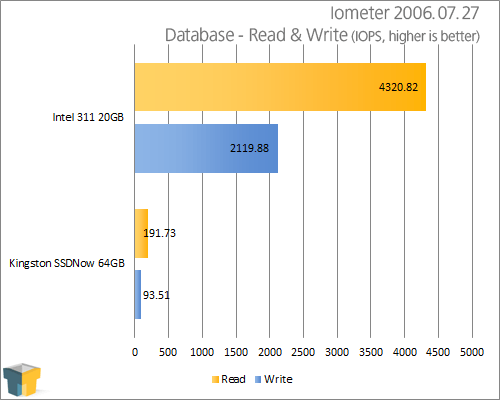
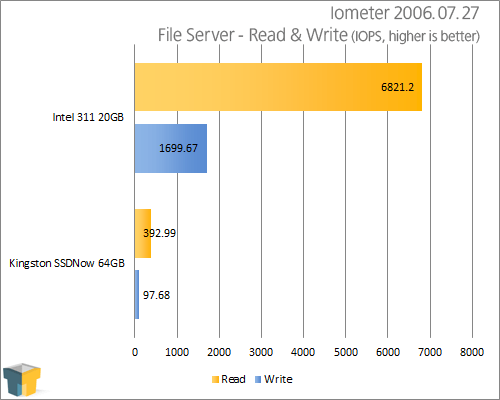
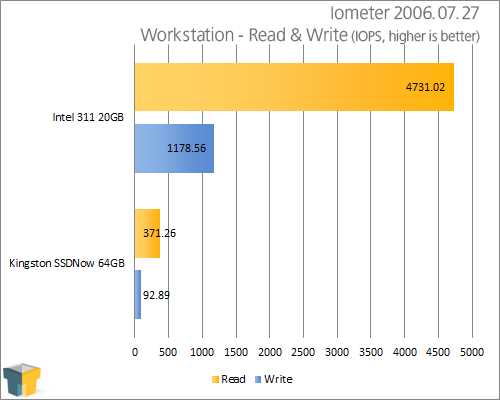
These results show why the Intel drive is best-suited for being used as the cache disk when a high number of IOPS is required by blowing the Kingston drive out of the water. As the test ran and the queue depth increased to 2, the IOPS by the Kingston drive dropped by over half but stayed constant all the way up to 32. The Intel drive however actually picked up speed with the IOPS increasing along with the queue depth.
The second benchmark used to compare the two SSDs is HD Tune. This should help us get an idea of raw throughput by using the “Benchmark” test and recording minimum, average and maximum read and write speeds.
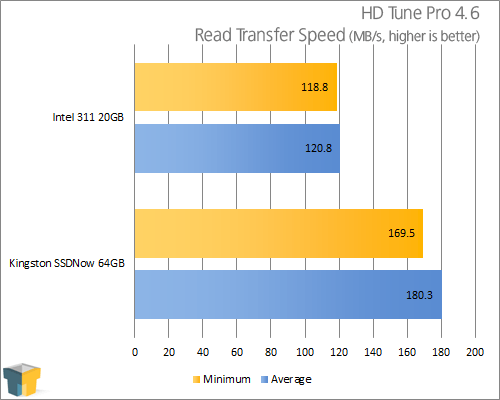
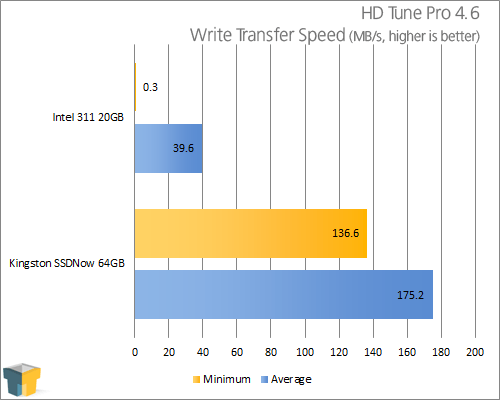
The HD Tune results paint a picture that most are already aware of based on previous tests run in this article. The Kingston drive handily comes out on top in terms of bandwidth so it should come as no surprise simply by looking at the official specifications.
Both of the tests run on the SSDs as stand alone units are synthetic but are perfect in pitting drives against one another in a head-to-head showdown. The results seem to fall in line with the specifications of the drives and in my mind, this article answers the main question of “What drive will work best for disk caching?” It also raises a few issues based on the inconsistency of some of the results.
With these drives trading punches throughout testing, what do all of these results add up to and which drive will ultimately work the best?
Support our efforts! With ad revenue at an all-time low for written websites, we're relying more than ever on reader support to help us continue putting so much effort into this type of content. You can support us by becoming a Patron, or by using our Amazon shopping affiliate links listed through our articles. Thanks for your support!




